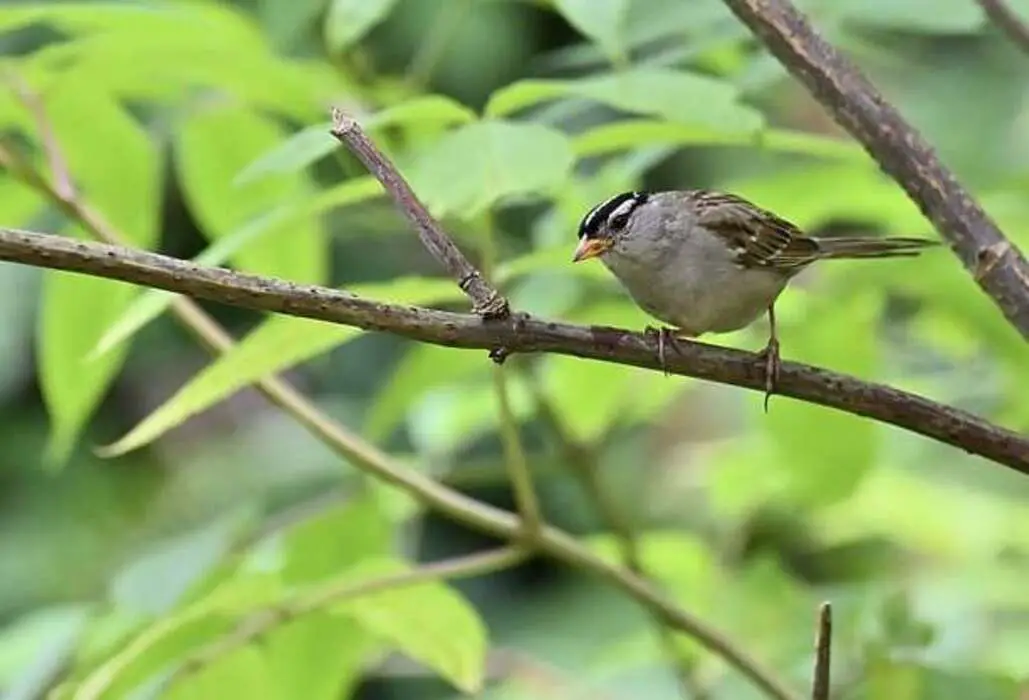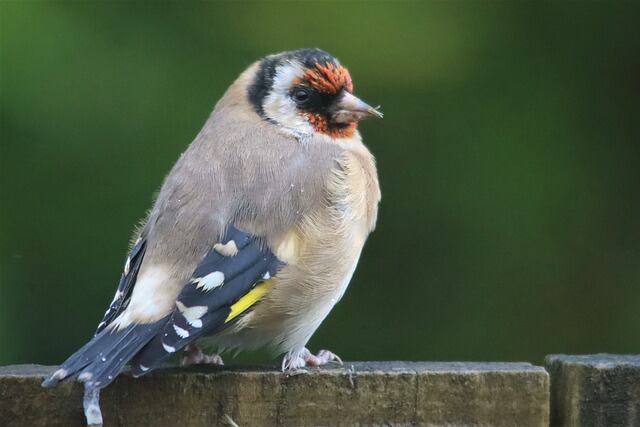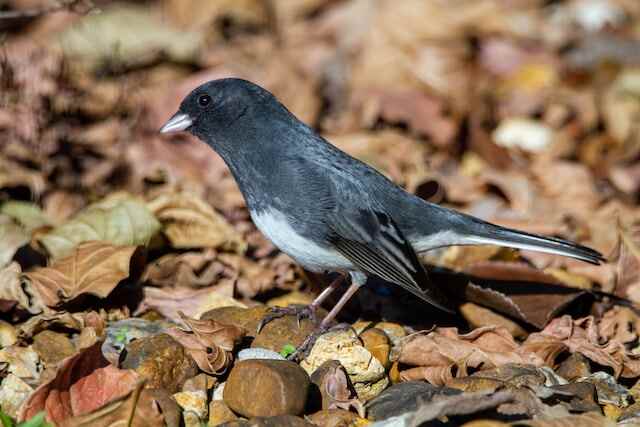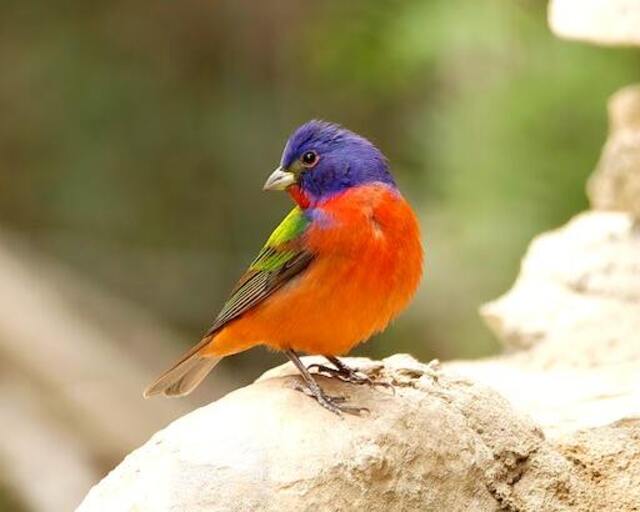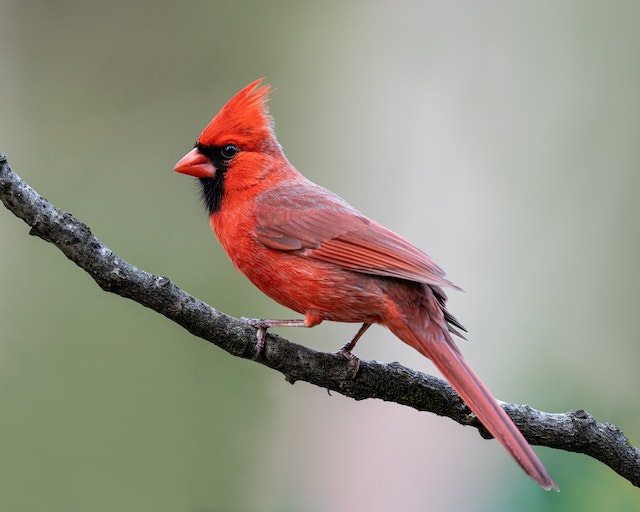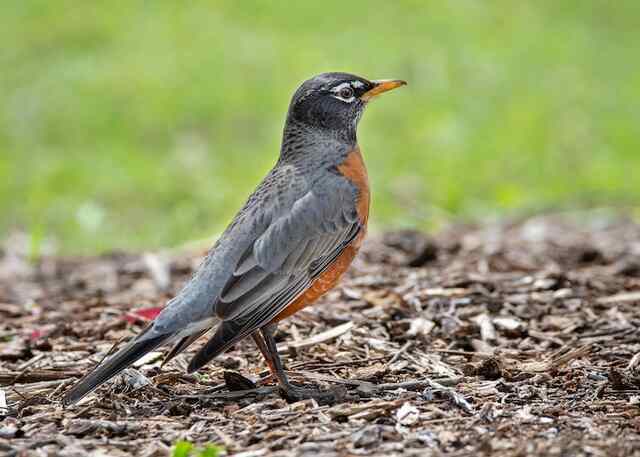Birds are an essential component of ecosystems and play a critical role in maintaining a balanced and healthy environment. They contribute in many ways, such as natural pest control, pollination, seed dispersal, nutrient cycling, and creating habitats, among others.
Birds actively regulate the ecosystem’s balance, contributing to the stability and diversity of the food web, and serve as indicators of environmental health. Understanding the role of birds can help us appreciate and conserve these beautiful creatures.
Table of Contents
- 1 Key Takeaways:
- 2 How Birds Help to Maintain a Balanced Ecosystem
- 3 The Role of Birds in Pest Control
- 4 Birds as Pollinators
- 5 Birds and Seed Dispersal
- 6 Birds in the Ecosystem: Nutrient Cycling and Soil Health
- 7 Birds in the Food Chain
- 8 Birds in the Food Chain
- 9 Birds as Ecosystem Regulators
- 10 Threats to Bird Populations
- 11 Conservation Efforts and the Future
- 12 Conclusion
- 13 FAQs: How Birds Help to Maintain a Balanced Ecosystem?
- 13.1 How do birds help to maintain a balanced ecosystem?
- 13.2 What is the role of birds in pest control?
- 13.3 How do birds contribute to pollination?
- 13.4 What is the significance of seed dispersal by birds?
- 13.5 How do birds contribute to nutrient cycling and soil health?
- 13.6 What is the position of birds in the food chain?
- 13.7 How do birds contribute to habitat creation and biodiversity?
- 13.8 How can birds serve as indicators of environmental health?
- 13.9 What are the threats to bird populations?
- 13.10 How can conservation efforts help maintain ecosystem balance?
- 13.11 Why is it important to appreciate and protect bird populations?
- 14 Author
Key Takeaways:
- Birds contribute significantly to ecosystem balance and health.
- Their roles include natural pest control, pollination, seed dispersal, nutrient cycling, and creating habitats.
- Birds serve as indicators of environmental health.
- Understanding the role of birds is crucial in appreciating and conserving them for the benefit of the environment.
How Birds Help to Maintain a Balanced Ecosystem
Birds play a crucial role in maintaining a balanced ecosystem. They help to control insect populations, pollinate plants, disperse seeds, and recycle nutrients back into the soil. By controlling insect populations, birds help to prevent the overconsumption of vegetation and the spread of disease.
Pollination by birds helps to ensure the reproduction of many plant species, while seed dispersal helps to promote the growth of new plants in different areas.
Additionally, birds help to recycle nutrients back into the soil through their droppings, which can enrich the soil and promote healthy plant growth. Overall, birds are an important part of the ecosystem and play a vital role in maintaining its balance and health.
The Role of Birds in Pest Control
Birds play a crucial role in maintaining a balanced ecosystem through natural pest control. They act as ecosystem regulators, keeping populations of insects and rodents in check and reducing the need for chemical pesticides. In fact, research has shown that bird predation can significantly reduce pest populations in agricultural crops.
How do birds control pests? Many bird species, such as hawks, owls, and kestrels, prey on rodents, which can cause significant damage to crops and spread disease. Others, like swallows and flycatchers, feed on a variety of flying insects, including mosquitoes, flies, and grasshoppers. Birds also target insect pests that attack specific crops, such as caterpillars on fruit trees and beetles on corn plants.
By consuming these pests, birds help to protect crops and support agricultural production. This, in turn, helps to maintain the ecological balance of the ecosystem. It is important to note that the use of chemical pesticides can have harmful effects on bird populations, as well as other wildlife and the environment as a whole.
Overall, the importance of birds in ecological balance cannot be overstated. Their role in natural pest control underscores the need for conservation efforts to protect bird populations and their habitats. By doing so, we can ensure that these ecosystem regulators continue to contribute to a healthy and balanced ecosystem.
Birds as Pollinators
Birds play a vital role in maintaining the delicate balance of the ecosystem, including as pollinators. Certain bird species, such as hummingbirds and honeyeaters, have evolved specifically to have a significant impact on plant growth and reproduction.
While insects are more widely recognized for their role in pollination, birds are also important pollinators, particularly for large, showy flowers and those with long tubular shapes. These flowers are often too deep for insects to reach, but birds, with their long beaks and tongues, are able to access the nectar and transfer pollen from flower to flower. As a result, bird pollination is essential for maintaining the biodiversity of plant species in the ecosystem.
The impact of bird pollination on ecosystems can vary depending on the bird species involved. For example, some bird species are known to have a significant impact on the fruit production of certain plants, helping to maintain a diverse range of food for other animals in the ecosystem.
Bird Species Impact on Ecosystem
Native bird species are particularly important in pollination, as they have co-evolved with the plants in their ecosystem and are best adapted to pollinating those particular species. The extinction of a bird species may lead to a decline in the plant species they pollinate, resulting in a ripple effect through the entire ecosystem.
Overall, the role of birds as pollinators is integral to the maintenance of ecosystem balance and the preservation of biodiversity.
Birds and Seed Dispersal
Birds play a critical role in ensuring a healthy ecosystem by helping to spread seeds and establish new plant growth. As natural pest controllers, many bird species feed on fruits and berries and disperse seeds through their droppings over long distances, aiding in the growth and diversity of plant life. In fact, some plants have evolved to rely solely on birds for seed dispersal.
Migratory birds also play a significant role in seed dispersal. As they travel vast distances, they carry seeds with them, spreading them to new locations and helping to establish plant populations in new areas. Without birds as seed dispersers, many plant populations would struggle to survive and the ecological balance would be disrupted.
Birds in the Ecosystem: Nutrient Cycling and Soil Health
Birds serve a critical role in maintaining the ecological balance by contributing to nutrient cycling and soil health.
By feeding on insects and other small animals, birds contribute to the natural decomposition of organic matter. Their droppings also contain high levels of nitrogen, phosphorus, and other essential nutrients, which they deposit onto the soil as they forage. This not only enriches the soil but also supports plant growth.
Birds are also known to aerate the soil through their foraging behaviors. As they scratch and peck at the ground, they loosen the soil and increase its porosity, allowing for better water infiltration and root growth. This improves the soil structure and overall health, which in turn supports a diverse range of plant and animal species.
As ecosystem regulators, birds play a crucial role in maintaining soil health and nutrient cycling, contributing to the overall ecological balance.
Birds in the Food Chain
Birds play a crucial role in the complex food web of an ecosystem. They occupy various positions in the food chain, serving as both predator and prey. As predators, birds help to naturally control pest populations, such as insects and rodents. This, in turn, reduces the need for chemical insecticides and rodenticides, which can have negative impacts on the environment. Birds also serve as prey for larger predators, such as raptors and snakes, which helps to maintain a balanced predator-prey relationship in the ecosystem.
Furthermore, birds contribute to the diversity of the food web by occupying different niches within their habitat. For example, certain bird species feed on the nectar of flowers, while others consume seeds or insects. This diversity helps to ensure that various species within the ecosystem have access to the resources they need to survive and thrive.
The impact of birds on the food chain can be seen in their absence. For example, a decline in the population of insect-eating birds can lead to an increase in insect populations, which can negatively impact plant health and ecosystem balance. Similarly, a decline in the population of seed-dispersing birds can result in a decrease in plant diversity and habitat creation.
Birds as Natural Pest Controllers
One of the most important roles that birds play in the ecosystem is that of natural pest control. Birds help to regulate pest populations, such as insects and rodents, by preying on them. This helps to keep their populations in check, preventing them from causing damage to crops and other plants. Birds also consume weed seeds, reducing the need for herbicides and promoting sustainable agriculture.
Some bird species are particularly effective at pest control. For example, barn owls and kestrels are skilled at controlling rodent populations. By eating rodents, these birds help to prevent damage to crops and reduce the spread of rodent-borne diseases. Similarly, insect-eating birds, such as swallows and warblers, help to control insect populations that can damage crops and garden plants.
Bird Species Impact on Ecosystem
The impact of bird species on the ecosystem varies depending on their ecological niche. Some bird species, such as raptors and scavengers, occupy the top of the food chain and have significant impacts on other species and the overall ecosystem. Others contribute to ecosystem balance through pollination, seed dispersal, and nutrient cycling.
The impact of bird species on the ecosystem can also be seen in their response to environmental changes. For example, changes in migratory patterns or population numbers can indicate shifts in climate or habitat conditions. Monitoring and understanding these changes can help researchers and conservationists better understand the health of ecosystems and the impacts of human activities on the environment.
Birds in the Food Chain
Birds play a crucial role in the food chain and contribute to the overall balance of the ecosystem. As predators, they help to control the populations of insects and rodents, reducing the need for chemical pesticides. As prey themselves, they provide an important food source for other species, such as raptors and snakes.
However, birds also serve as indicators of environmental health. Changes in bird populations and behavior can signal shifts in the ecological balance, which can have far-reaching consequences for the entire ecosystem. This is why it is essential to maintain healthy bird populations for the overall health of the ecosystem.
By maintaining a healthy food chain, birds help to ensure that all species in the ecosystem have access to the resources they need to survive. When bird populations decline, it can lead to imbalances in the food chain and ultimately disrupt the ecological balance.
As such, the role of birds in the food chain cannot be overstated. It is essential to protect and conserve bird habitats to maintain healthy populations and ensure ecosystem balance.
Birds as Ecosystem Regulators
Birds play a vital role in regulating ecosystems and maintaining ecological balance. Through their feeding habits and droppings, they stimulate nutrient cycling and contribute to soil health. Birds also serve as natural pest controllers, preying on insects and rodents and reducing the need for chemical pesticides. Their role in seed dispersal helps establish new plants in different locations, contributing to habitat creation and biodiversity.
Furthermore, bird populations can serve as indicators of environmental health, as changes in their populations and behavior can signal shifts in the ecological balance. As such, birds play a crucial role in monitoring and understanding the health of ecosystems.
However, bird populations are facing numerous threats, including habitat loss, climate change, pollution, and invasive species. These threats have the potential to disrupt the ecological balance and negatively impact bird populations, highlighting the need for conservation efforts.
By protecting bird species and their habitats, we can help maintain a balanced ecosystem and ensure a healthy environment for future generations. Recognizing the importance of birds as ecosystem regulators is essential for promoting conservation efforts and preserving ecological balance.
Threats to Bird Populations
Bird populations face numerous threats, posing risks to the delicate balance of ecosystems.
Habitat loss is a major threat to bird populations. As human development expands, natural habitats are increasingly converted into urban areas, farmlands, and other land uses that are not compatible with bird habitats. This loss of habitat reduces the availability of nesting sites, food sources, and shelter, ultimately leading to declines in bird populations and impacting the overall balance of the ecosystem.
Climate change is another significant threat to bird populations. Changes in temperature and precipitation patterns can shift the timing of important life cycle events, such as breeding and migration, which can disrupt the synchronization between birds and their food sources. As a result, bird populations may be unable to adapt to these changes, leading to population declines and potential extinction.
Pollution is a threat that affects both birds and their habitats. Pesticides, herbicides, and other chemicals used in agriculture and other industries can poison birds and their food sources, leading to sickness and death. Pollution can also contaminate water and soil, reducing the quality of bird habitats and affecting their ability to thrive.
Invasive species are another threat to bird populations. Non-native species can compete with native birds for resources and habitat, leading to population declines. Invasive plants can also displace native plant species that birds depend on for food and shelter.
These threats to bird populations and their habitats can ultimately disrupt the balance of ecosystems, impacting the health and diversity of plant and animal species. It is essential to address these threats through conservation efforts to protect bird populations and restore their habitats.
Conservation Efforts and the Future
Birds are essential to ecosystem maintenance and the ecological balance of our planet. As such, it is crucial to protect bird populations and their habitats for the benefit of future generations. Conservation efforts play a significant role in ensuring the survival of bird species and preserving the environment.
Various initiatives and strategies have been put in place to protect bird populations and their habitats. These efforts include creating bird sanctuaries and protected areas, regulating hunting and trade in bird species, and supporting research and monitoring programs. Public awareness and education campaigns have also been effective in promoting bird conservation and encouraging people to take action.
Conservation efforts go beyond protecting individual bird species. They have far-reaching benefits for the overall health of ecosystems, including maintaining biodiversity, regulating pest populations, and improving soil health. Successful bird conservation can lead to positive outcomes for other species and the environment as a whole.
The importance of birds in maintaining the ecological balance cannot be overstated. It is up to all of us to appreciate and protect bird populations, ensuring their continued existence in the future. By supporting conservation efforts, we can help to maintain a healthy environment and leave a positive impact for generations to come.
Conclusion
From controlling pests to pollinating plants, birds play a crucial role in maintaining a balanced ecosystem. Their impact on biodiversity, soil health, and nutrient cycling cannot be overstated. Without birds, the delicate balance of the environment would be at risk.
However, bird populations face numerous threats, including habitat loss, climate change, pollution, and invasive species. Conservation efforts are essential in protecting these species and preserving ecosystem balance. The success of these efforts will have a positive impact on the overall health of the environment.
We must appreciate and protect bird populations for the benefit of future generations. By supporting conservation initiatives and increasing awareness, we can help ensure that the vital role of birds in maintaining ecosystem balance continues to be fulfilled.
FAQs: How Birds Help to Maintain a Balanced Ecosystem?
How do birds help to maintain a balanced ecosystem?
Birds help to maintain a balanced ecosystem through various ways such as pest control, pollination, seed dispersal, nutrient cycling, and habitat creation.
What is the role of birds in pest control?
Birds prey on insects and rodents, helping to keep their populations in check. This natural pest control reduces the need for chemical pesticides and contributes to ecosystem balance.
How do birds contribute to pollination?
Certain bird species, like hummingbirds and honeyeaters, play a vital role in pollinating plants. They transfer pollen from one flower to another, ensuring the reproduction of various plant species and maintaining ecosystem diversity.
What is the significance of seed dispersal by birds?
Birds consume fruits and berries and spread the seeds through their droppings, which helps establish new plants in different locations. Migratory birds also play a crucial role in seed dispersal across vast distances.
How do birds contribute to nutrient cycling and soil health?
Birds contribute to nutrient cycling and soil health through their feeding habits and droppings. They recycle nutrients back into the soil, enriching it and supporting plant growth. Additionally, birds aerate the soil through their foraging behaviors.
What is the position of birds in the food chain?
Birds serve as both predator and prey in the food chain, contributing to the stability and diversity of the ecosystem. Maintaining healthy bird populations is crucial for the overall health of the food web.
How do birds contribute to habitat creation and biodiversity?
Birds build nests and create habitats for themselves and other species, enhancing biodiversity in the ecosystem. Their presence helps create a diverse and balanced habitat for a variety of organisms.
How can birds serve as indicators of environmental health?
Changes in bird populations and behavior can signal shifts in the ecological balance, providing valuable insights into the health of ecosystems. Monitoring bird species can help scientists understand the state of the environment.
What are the threats to bird populations?
Bird populations face threats such as habitat loss, climate change, pollution, and invasive species. These factors can have negative impacts on bird populations and disrupt the ecological balance.
How can conservation efforts help maintain ecosystem balance?
Conservation efforts aimed at protecting bird species and their habitats are crucial for maintaining ecosystem balance. Initiatives and strategies such as habitat preservation and public awareness play a vital role in preserving bird populations and overall environmental health.
Why is it important to appreciate and protect bird populations?
Birds play a vital role in maintaining a balanced ecosystem. Appreciating and protecting bird populations not only benefits the environment but also ensures a sustainable future for generations to come.

